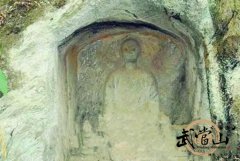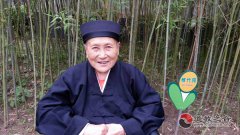狄伯杰:社会凝聚力与道教(英文)SOCIAL COHESI
所属栏目: 道教文化资讯 发布时间: 2016-09-14 文章来源:www.tkpao.com/fuzhou/
At the outset, it is important to draw a distinction between Chinese characters jiao (religion) and jia (school of thought), for it could mislead the discussion on isms of Taoism in this paper. In this brief study a humble attempt has been made to look upon the question of social harmony from philosophical parameter rather than an angle of religion or faith. It is interesting to note Taoism along with other philosophies such as Confucianism and Buddhism strike a chord when these propound that the highest achievement of a human being is nothing less than being a sage, and the highest achievement of a sage is the identification of the individual with the universe, and at the same time not divorcing from the daily ordinary activities. Therefore, a noble person or a perfect man is not only a citizen of the society but also the universe.
Secondly, it is important to sum up the salient features of Taoism upfront. The starting point of Taoism propounded and developed by Yang Zhu (440-360? BC), Lao Zi (5th-6th Century BC) and Zhuang Zi (369BC-286BC) is the preservation of life and avoidance of injury, and the understanding of the laws of nature that undermine the change of things in universe. Tao, (variedly translated as Way, Supreme Natural Being and Dharma etc.) as a concept was first put forward by Lao Zi. According to him (Ren 1993:15), The Tao that cannot be spoken is not the eternal Tao; the name that can be named is not the eternal name. The nameless (wuming) is the origin of Heaven and Earth; the named (youming) is the root of all things. According to Lao Zi (Ren 1993:60), All things under Heaven come into being from concrete being (you); and all being come into being from non-being (wu) or Tao. This implies that Tao is the general source of all the things. The literature about Taoism is found in Dao Dejing, Zhuang Zi, Lie Zi and many commentaries on Lao Zi or Dao Dejing by Neo-Taoist scholars like Wang Pi (266-249) He Yan (?-249) and Guo Xiang (?-312)
ON HUMAN WORLD AND SOCIAL COHESION
Taoism, believes in the equality of life and death. According to Zhuang Zi (Chan 1963: 209), before life there is no life, no form, and no material force (qi). In the limbo of being and non-being, there was a transformation and qi was evolved. From the form, life and then death. With death the body is decomposed and so is the spirit (Fung 1989:42). In Taoist view, this is like the rotation of four seasons, spring, summer, fall and winter.
The Middle Path has been recommended by most of the ancient philosophies including Buddhism and Confucianism for complete social cohesion. However, the middle path recommended by Taoism transcends the path advocated by Buddhism and Confucianism. In Buddhism and Confucianism, the path revolves around morality and ethics, whereas in Taoism it revolves around Tao. According to Taoism, the maxim has been never too much because Reversion is the movement of Tao, for wanting too much, one runs the risk of getting the opposite of what one wants. Therefore, Zhuang Zi, another advocator of Taoism, recommends a middle path when he says (Fung 1989:59), In doing what convention considers as bad, escape disgrace or penalty. Always pursue the middle course. These are ways to preserve our body, to maintain our life, to support our parents, and to complete our terms of years.
Cultivating moral character (xiushen)
Taoism differs from Buddhism and Confucianism as far as the self-cultivation is concerned. In Lao Zi it is said (Ren 1993: 101), Let the people return to the use of knotted cords for recording events, delight in their food, dress in beauty, dwell in comfort and enjoy their life. So much so Lao Zi abhorred knowledge, for the more knowledge will drift you away from the Tao. Zhuang Zi agrees with Lao Zi when he says (Fung 1989: 59), There is a limit to our life, but to knowledge there is no limit. With what is limited to pursue what is unlimited is a perilous thing. According to Taoists, there are natural ways of doing things, and hence there are also natural solutions to the problems. What human beings have received from nature is in proper or balanced quantity, and cannot be increased or decreased with human efforts. The Taoists interpret the efforts as bondages. Happiness, according to them could be found if these bondages are released.
Taoism, on the contrary despises Confucian virtues such as ren (benevolence) and zheng (righteousness), for according to Lao Zi, these virtues represent degeneration from Tao and De (power). Therefore, Lao Zi says, when Tao is lost, does De arise; when De is lost, does benevolence arise; when benevolence is lost, does righteousness arise; when righteousness is lost, does propriety arise. The thing that is called propriety is really the want of loyalty and faithfulness and the beginning of disorder (Ren 1993: 56-7). This could be regarded as the most scathing criticism of Confucianism by Taoism, whereby the very edifice of Confucian philosophy is refuted by the Taoists. Taoism, however, strike a chord with Buddhism when it elaborates on desire. According to Lao Zi (Ren 1993: 66), people should have few desires as there is no calamity greater than discontentment, and there is no guilt greater than covetousness. Taoism further attaches desire with knowledge. According to Taoist philosophy ignorance is the panacea for all desires.
Social cohesion
Taoism, attaches importance to super moral value. In Zhuang Zi, another classic of the Taoism, Confucius is often ridiculed for conforming himself to the morality and ethics only. According to Taoists, Confucius was conscious only of moral values, and not of super moral values. Chinese philosopher Feng Youlan (Fung 1960:46; Zhang 1990: 67 Lunyu: Liren), does not agree with Taoist contentions and quote a Confucian saying in the support of his argument. The saying goes: At fifteen I set my mind in learning; At forty I had no doubts; At fifty I knew the decree of heaven; At sixty I was already obedient [to this decree]; At seventy I could follow the desires of my mind without overstepping the boundaries [of what is right]. According to Feng, it was Tao, which Confucius at fifteen set his mind upon learning as in Analects Confucius says, Set your mind on Tao; To hear the Tao in morning and then die at night, that would be alright (Zhang 1990: 86 Lunyu, Lier). According o Feng, learning, as we understand today means the increase of our knowledge, but the Tao is that whereby we can elevate our mind.
Secondly, the principle of non-action also reign supreme in human conduct as far as Taoists are concerned. According to Lao Zi (Ren 1993: 21), one gains by doing nothing for himself. That is to say that one attains his selfish ends through selflessness. Lao Zi says, Heaven is eternal and earth is everlasting. Heaven and Earth can be eternal because they do not exist for themselves, and for this reason they obtain longevity. Therefore, according to Lao Zi, the sage puts himself last, but actually he stands foremost. He has no regard for himself, but his life is well preserved.
Governance
The Taoist agrees with the Confucian and Buddhist notions that the ideal state is one, which has a sage as its head. Feng, the eminent Chinese philosopher agrees to this at least when he comments on Confucian ideal on governance (Fung 1962: 102). The sage upon becoming a king according to Confucianism and Buddhism should do a lot of good things for his people and lead from front with morality and righteousness. Contrary to these notions, a true Taoist ruler should undo many a things rather not to do at all. To express it with Taoist dictum, it is governance by non-action. According to Lao Zi (Ren 1993: 34), when sageliness and wisdom is discarded people benefit from it. When benevolence and righteousness is discarded, people can return to filial piety and parental affections. Therefore, only when skill and profit are discarded, can there be thieves and robbers no more. However, Taoism strike a chord with Confucianism when Lao Zi says that people should not be exalted, for if people are kept ignorant, it is easy to rule them. According to Lao Zi (Ren 1993: 17), Refrain from exalting capable people, so that the people should not competethe government of sage lies in simplifying peoples minds, filling their bellies, weakening their ambitions, strengthening their bones, and always keeping the people innocent of knowledge and desire. Confucius has also said that the common people should be directed to do things but not made to comprehend them. To the Taoists (Ren 1993: 69), the sage ruler should treat his subjects like ignorant infants without desire. The yu (ignorant) is not a derogatory term in Taoist philosophy; it is rather a virtue as embodied by the sage ruler himself. Zhuang Zi further despises government machinery for governing people.
To summarize, it could be deduced that Taoism tried to aspire for social cohesion and harmony through different interpretations. While both the Buddhism and Confucianism, emphasized on ethics and morality in self-cultivation and governance, Taoism on the contrary attempted to reach social cohesion by non-action, for Tao to them is the reversal of movements. Non-action, however, as rightly said by Feng (1962:100) does not mean doing nothing in Taoist philosophy, rather it means doing less and acting without artificiality and arbitrariness and not over doing. Above all, Taoism regarded love for the people as a nucleus for this harmony.
References:
Chan, Wing-Tsit, Tr. comp. (1963). A Source Book in Chinese Philosophy. Princeton University Press, Princeton, New Jersey.
Cui, Lianzhong and Wu Wen (1994). Lun fotuo yu kongzi de daodeguan (On Confucian and Buddhist morality). Zhongyin wenhua jiaoliu yu bijiao (Sino-Indian cultural exchange and comparative study). Zhongguo Huaqiao Publishing House, Beijing.
Fung, Yulan [Feng Youlan], ed. Derk Bodde (1953). A Short History of Chinese Philosophy. The Macmillan, New York.
Fung, Yulan, Tr. (1989). A Taoist Classic: Chuang Tsu [Zhuang Zi]. Foreign Language Press, Beijing.
Harvey, Peter (2000). An Introduction to Buddhist Ethics. Cambridge University Press, Cambridge.
Ren, Jiyu, Tr. (1993). A Taoist Classic: The Book of Lao Zi. Foreign Language Press, Beijing.
Xue, Keqiao (1993). Lao Zi yu Yindu (LaoZi and India). Zhongyin wenhua jiaoliu bijiao (Comparative study of Sino-Indian cultural exchange). Zhongguo Huaqiao Publishing House.
Zhang, Yiwen Tr. (1990). Sishu quanyi (Complete Chinese translation of Four Classics). Hunan University Publishing House, Changsha.
- 2016年犯太岁怎么办,如何破解 2016-09-13
- 史向前:道教的人生追求与环境保护 2016-09-14
- 正一天师清微派22代传人——薛明德道长 2016-09-18
- 十二星座的恶劣性格真相 2016-09-20
- 3大办公风水细节决定事业成败 2016-09-26
- 多元一体理论:拓展中华民族研究新视野 2016-09-14
- 诚明真人张志敬 2016-09-14
- 道乐:让心灵超越凡俗的天籁 2016-09-18
- 有人用过单相思符吗,效果咋样 2016-09-28
- 海峡两岸保生大帝民俗文化交流座谈会举行 2016-09-28
- 网上哪家的回心转意合和符咒好? 2016-09-28
- 如何打坐-修真入门-教你怎么打坐 2016-09-27
- 五十五真修行路-修真功法 2016-09-27
- 遥寄道友 2016-09-27
- 次韵周邠寄雁荡山图二首 2016-09-27
- 径山道中次韵答周长官兼赠苏寺丞 2016-09-27
大家在看
文章精选




